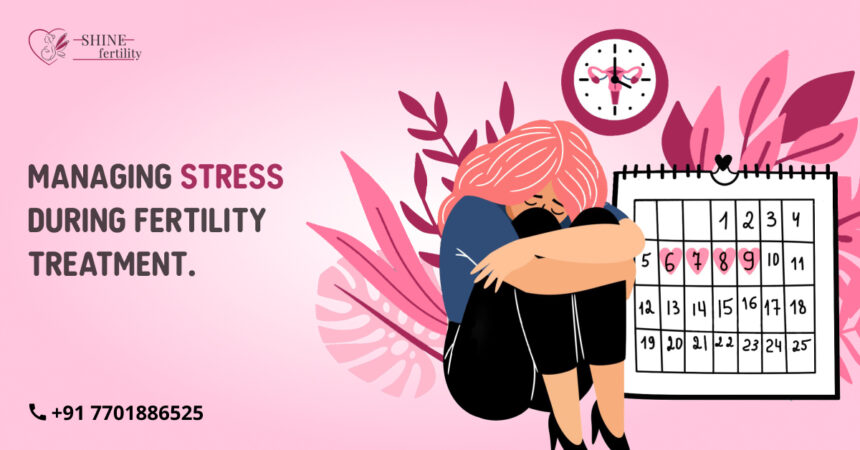After the first child was born via IVF in 1978, IVF became increasingly popular, and more and more couples who are unable to have a baby have started opting for this treatment. Today, 1% of babies born worldwide are conceived via Assisted Reproductive Technologies like- IVF, ICSI, Surrogacy, and more. However, IVF does not guarantee 100% success, there are chances that your IVF might not be successful.
You must be wondering why IVF fails? It is vital to understand that each patient is unique and that innumerable factors need to be considered when you opt for IVF. IVF failure reasons also depend on certain factors like-
Previous pregnancy
Chances of a successful IVF increase, if the woman has had a normal pregnancy before and carried her baby to term. On the other hand, a woman with a medical history of multiple miscarriages could have a more difficult IVF. In such cases, other fertility treatments like PGT, Surrogacy might be needed.
Age
If you want to get IVF, then the first question which you will be asked is- What is the age of the female partner. Women below the age of 35 have more chances of getting pregnant via IVF, in comparison with those who are in their late 30s or 40s. As age increases, the chances of a successful IVF decrease. This happens because the quality and quantity of eggs and the quality of the uterus reduce as the woman grows older. However, if the woman decides to use donor eggs, then the age factor can be ignored.
Patient’s Lifestyle
The lifestyle of the patient plays a very critical role in the success or failure of IVF. If you are planning to undergo IVF treatment, it is highly recommended to stop the consumption of alcohol and smoking at least months prior to the start of IVF treatment. Smoking and drinking alcohol can be the reason why IVF fails. People who are overweight or underweight also have fewer chances of a successful IVF, as compared to people with normal BMI. having a healthy weight, consuming a nutritious diet, and exercising regularly will benefit you.
Embryo Quality and Transfer
Poor embryos are one of the biggest reasons for IVF failures. In the case of defective embryos, they are unable to implant themselves in the uterus. Embryos that might look healthy in the lab might actually not be of good quality hence they get rejected by the womb. An abnormal embryo might also lead to miscarriage.
Egg Quality
The success of an IVF procedure largely depends upon the eggs being used for the procedure. As a woman’s age increases, the quality and quantity of her eggs start decreasing, thus affecting her fertility. The quality of eggs deteriorates due to the birth of abnormal chromosomal eggs. Women below the age of 35 are more likely to succeed in IVF. Women above the age of 35 can have a successful IVF if they opt for Donor Eggs.
Sperm Quality
Although not a common factor, poor quality of sperm is also an issue that might have a negative impact on IVF success. For fertilization of sperm, the sperm has to be motile, well-shaped, and healthy to reach and infuse the egg. If the sperm has poor shape, motility, or health, fertilization will not take place properly. In such cases, the couple has to go for either donor sperm or ICSI.
Problem in the Uterus
Even if the sperm and egg chosen are of good quality, the IVF might still fail due to the failure in the implantation of the embryo in the wall of the uterus. There are numerous reasons why this might happen, like- Uterine Polyps, Fibroids, abnormal uterus shape, uterus scarring, and intrauterine adhesions.
IVF is a miracle. It can happen to you. The above are just a few factors. Nevertheless, competent doctors at IVF clinics weigh the positive and negative factors and plan the treatment in a way that tackles the very problem and allows for better chances of success.
If you have any further questions, our embryologists and physicians will be happy to assist. Simply call the clinic on 020 7224 1880, or to book a consultation online,
Are you facing fertility issues? Don’t worry give, us a call at _____, our fertility experts will guide you towards the right path. You can also book a coonsulttaion online, just fill out the form given below.
FAQ
Why does IVF fail with good embryos?
One of the main reasons why IVF fails is due to poor embryo quality. Embryos fail to implant themselves on the uterus wall because they have one or another defect in them. And even though the embryos look perfect in the lab, they still might have some defects, which prevent them from growing properly. Or there might be an issue with the uterus.
When can I try again after failed IVF?
It is important to have at least one menstrual cycle between 2 IVFs. Hence, you should wait for at least 4 to 6 weeks before trying for another IVF.
How can I increase my IVF success?
If you want to increase your chances of a successful IVF, then there are certain things you can practice, like-
- Maintain normal BMI.
- Quit smoking.
- Don’t take stress.
- Take adequate sleep.
- Sufficient intake of Vitamin D.
- Take supplements.
- Be patient.

